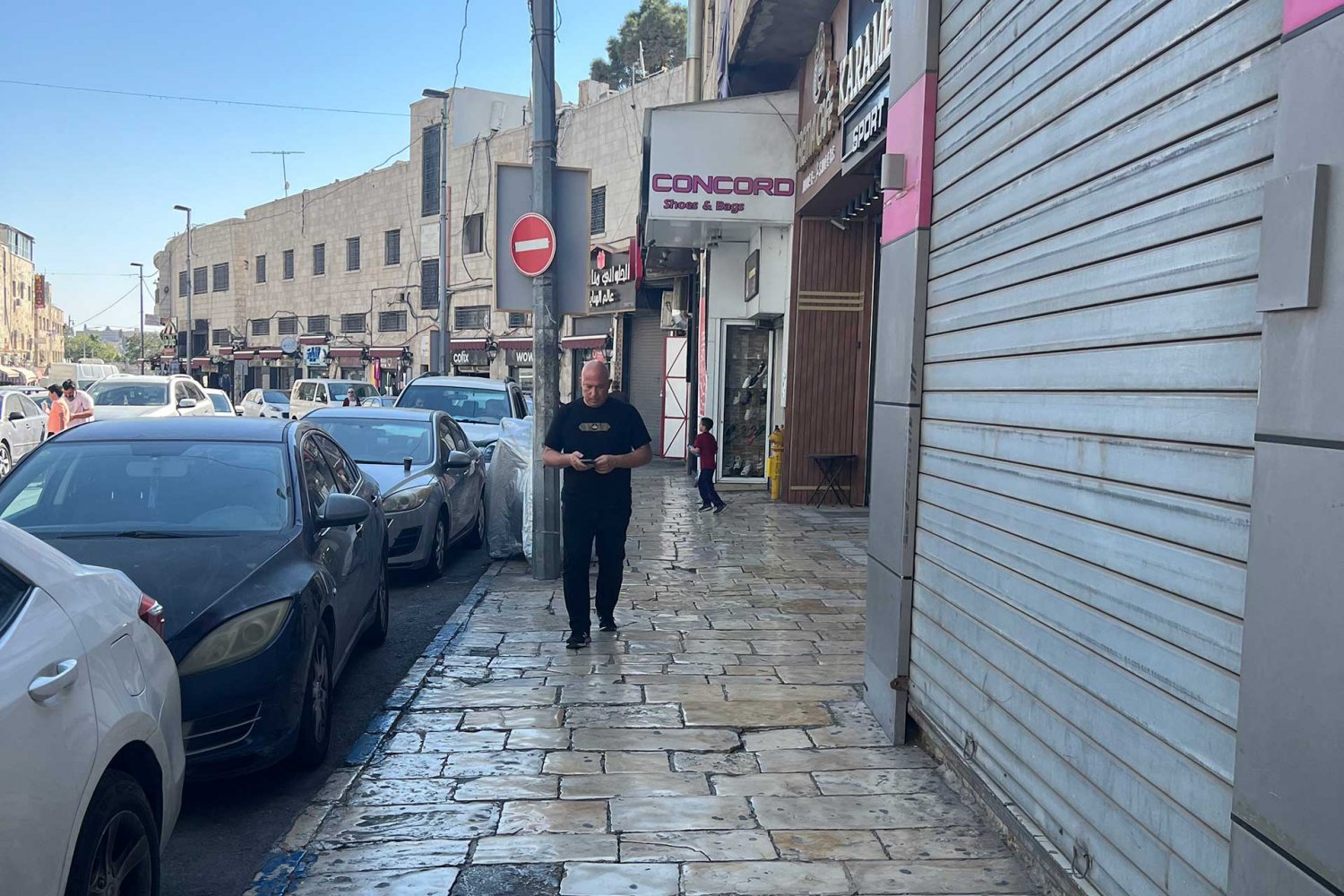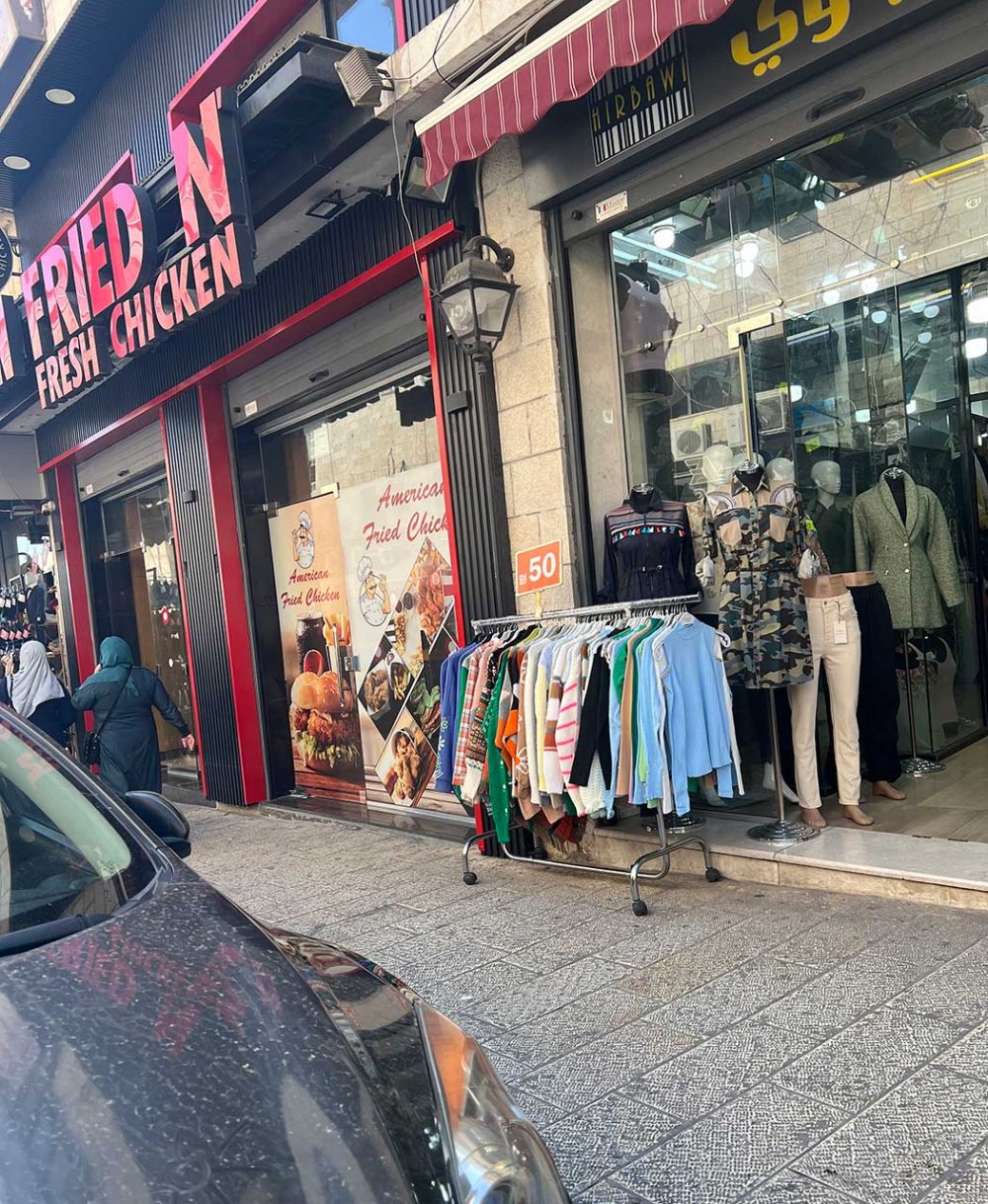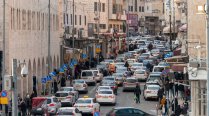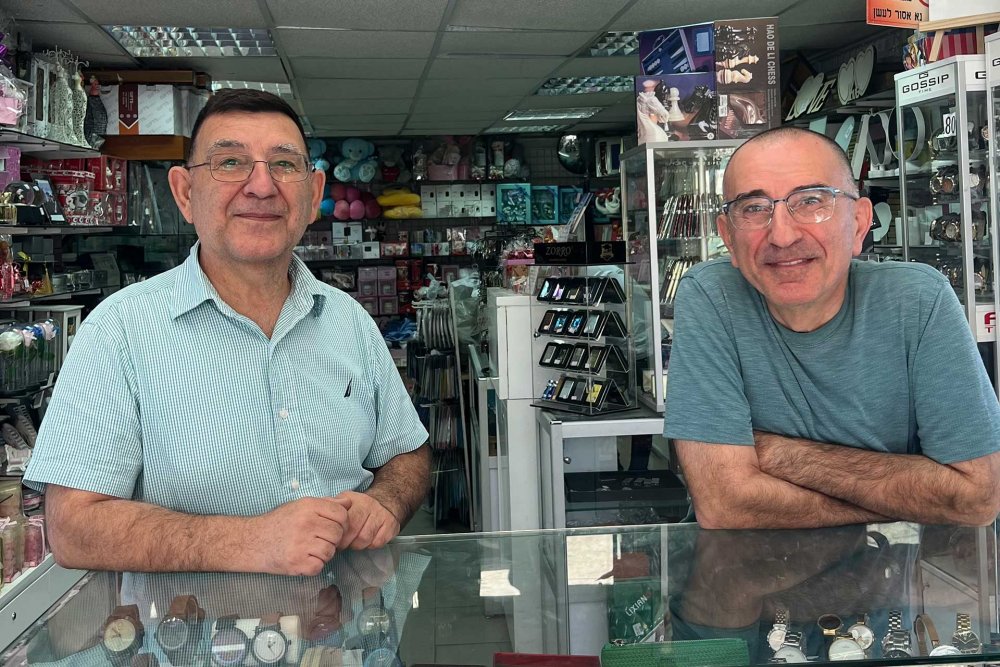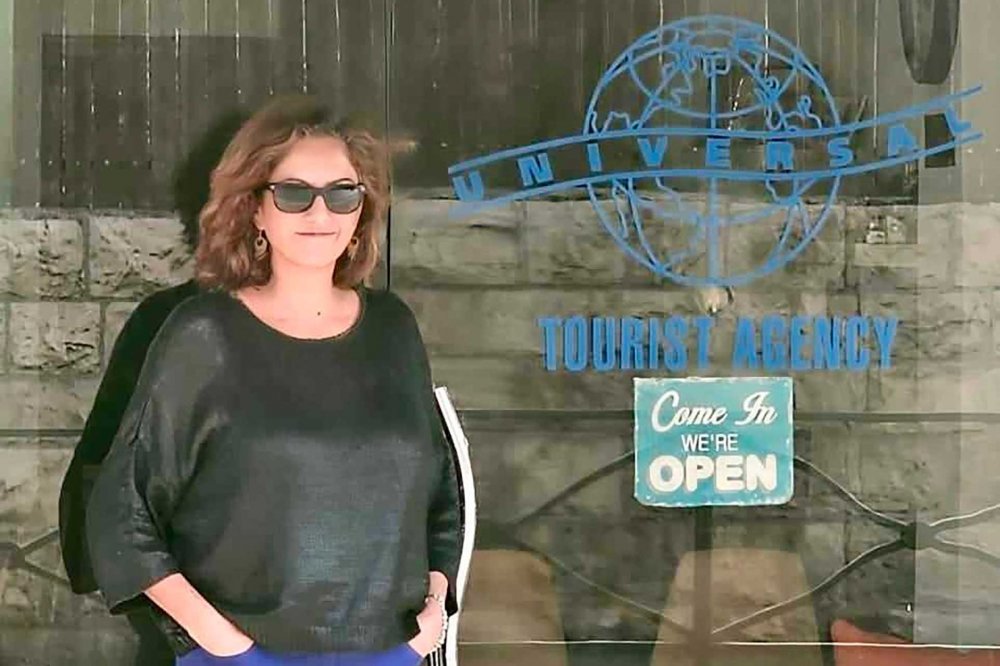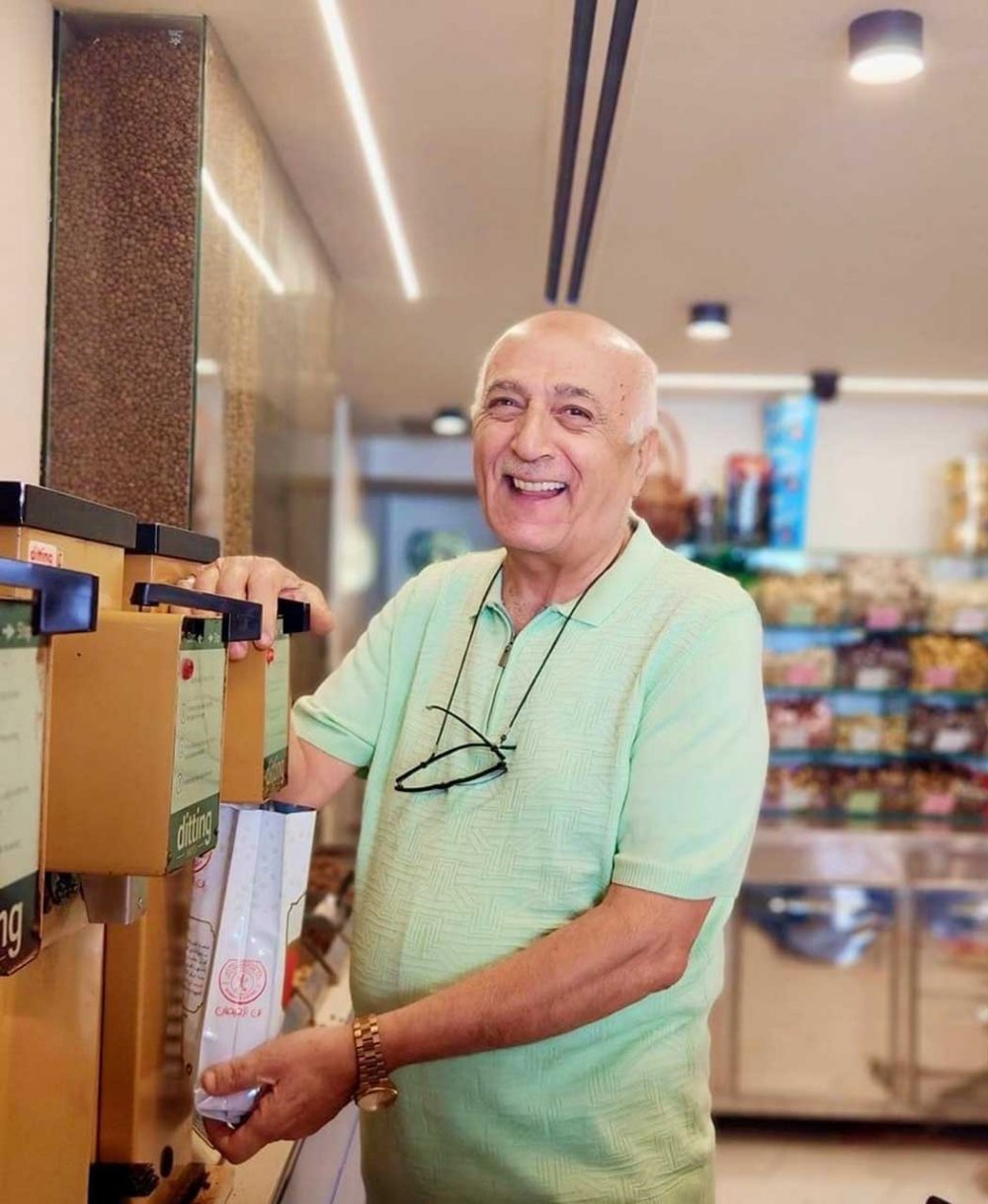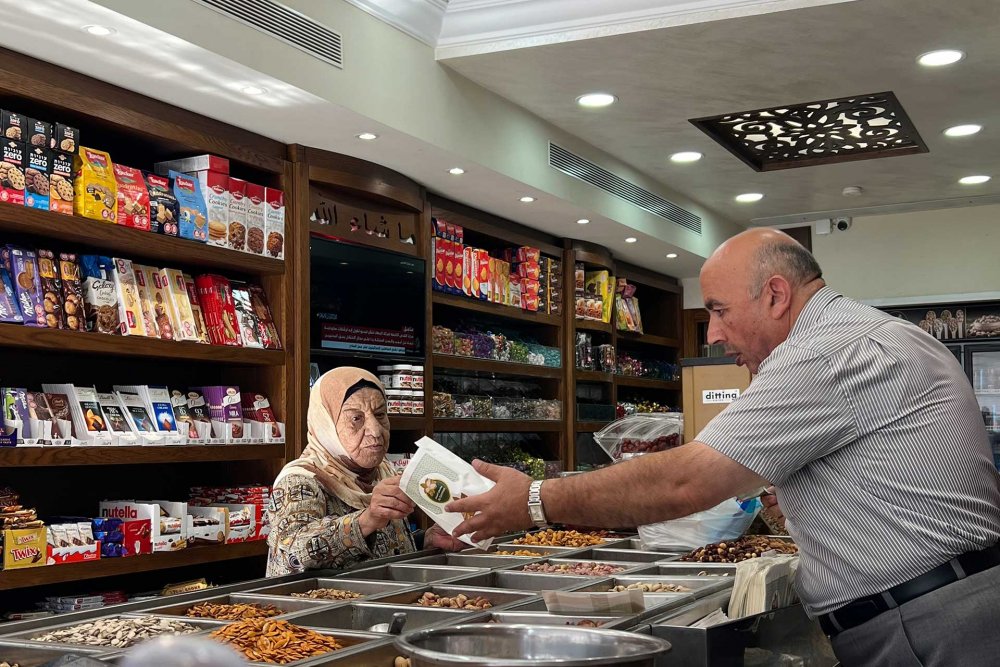Hijazi al-Risheq, the owner of a juice shop on Salah al-Din Street, suddenly stopped talking when the owner of a shop on the opposite side of the street approached him and told him that Israeli tax and municipality crews, accompanied by the Israeli police, were at one end of the street, entering shops and recording violations. The shopkeeper’s final words were, “Be careful.”
A minute later, a woman who owns a clothing store near al-Risheq’s store arrived and said the approaching Israelis were tax people. Within seconds, shop owners began either closing the doors of their shops or examining the files and money box.
Al-Risheq is one of the oldest shop owners on Salah al-Din Street, the most important business street in East Jerusalem, and he told Jerusalem Story: “These crews affiliated with the Jerusalem municipality and tax authorities fine every shop they enter, often for no reason. They have intensified their campaigns in recent days, especially since the war on the Gaza Strip.”1 He said that tax collectors take turns in Palestinian neighborhoods.

